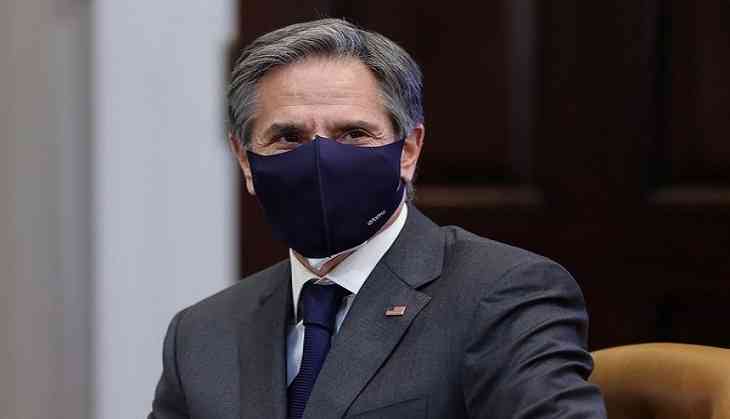US sanctions 24 Hong Kong and Chinese officials ahead of Alaska meet

The United States has sanctioned an additional 24 Chinese and Hong Kong officials over Beijing's ongoing crackdown on the city, ahead of US Secretary of State Antony Blinken's meeting with top Chinese diplomats in Alaska later this week.
According to CNN, the sanctions were introduced under the Hong Kong Autonomy Act (HKAA), which was passed by the United States last year in response to the imposition by Beijing of a new national security law in Hong Kong that bans secession, subversion and collusion with foreign forces.
Among those sanctioned are Wang Chen, a member of the 25-person Politburo, one of China's top lawmaking bodies, and Tam Yiu-chung, the only Hong Konger on the committee that drafted the national security law. Many of the figures had previously been designated by the Trump administration and barred from the US, though not directly under the HKAA.
In a statement, Blinken said the move was in response to new restrictions introduced by Beijing on democracy in Hong Kong, which will further restrict the right of people in the city to stand for election.
"The release of (the) update to the Hong Kong Autonomy Act report underscores our deep concern with the National People's Congress March 11 decision to unilaterally undermine Hong Kong's electoral system. This action further undermines the high degree of autonomy promised to people in Hong Kong and denies Hong Kongers a voice in their own governance, a move that the United Kingdom has declared to be a breach of the Sino-British Joint Declaration," he said.
Blinken said the new sanctions underscore "our deep concern with the National People's Congress March 11 decision to unilaterally undermine Hong Kong's electoral system."
"A stable, prosperous Hong Kong that respects human rights, freedoms, and political pluralism serves the interests of Hong Kong, mainland China, and the broader international community. The United States stands united with our allies and partners in speaking out for the rights and freedoms of people in Hong Kong, and we will respond when the PRC fails to meet its obligations," he added.
China, earlier this month, voted to pass legislation on Hong Kong's electoral system. The legislation was passed with only one abstention and 2,895 delegates voting in favour. The Congress regularly unanimously or overwhelmingly rubber stamps plans proposed by the party.
The plan will allow the ruling Communist Party to appoint more of Hong Kong's lawmakers, reducing the share elected by the public.
Less than a year after imposing the draconian National Security Law, China last week had launched a legislative process for drastic electoral system reform in Hong Kong, which could benefit the pro-establishment camp and further quash the political opposition in the city.
The Election Committee will be expanded to add these 300 Beijing loyalists and the Legislative Council will also be expanded to 90 seats from 70.
Although Chinese officials have insisted that the measures are necessary to establish a 'democratic electoral system with Hong Kong characteristics', critics have warned that it would limit the space for the opposition in the city and roll back years of effort to liberalise the system, reported SCMP.
(ANI)
Also Read: US promotes 'serial testing' for COVID-19 with streamlined approval

